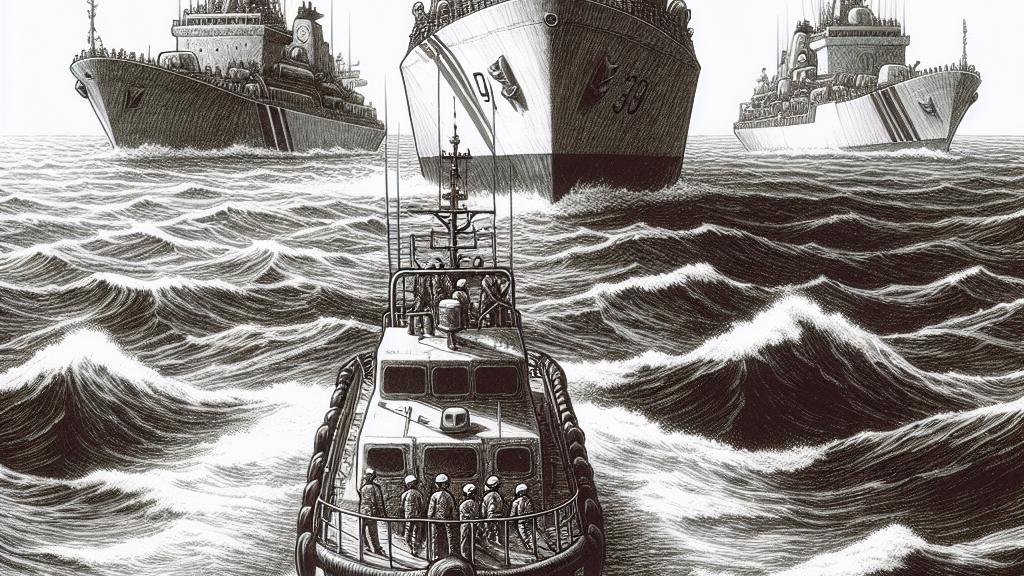Tensions Rise as China Intensifies Patrols in Disputed South China Sea
Overview
- China escalates patrols around Scarborough Shoal, igniting deep territorial tensions.
- The Philippines stands resolute, fiercely defending its claims against aggressive actions.
- Escalating confrontations raise serious concerns of impending military conflict in the region.

Heightened Tensions at Scarborough Shoal
In one of the most contentious areas in the world, the South China Sea, tensions are reaching a boiling point, especially around Scarborough Shoal. Recently, on September 28, Chinese naval and aerial forces intensified their patrols in these disputed waters, clearly sending a message of defiance. Despite a clear ruling from an international tribunal rejecting Beijing's claims, China continues to operate assertively. Envision a dramatic scene where a Chinese Coast Guard ship blocks the path of a Philippine vessel on a routine supply mission—this confrontation underscores the escalating stakes in a region fraught with peril. Such actions are not simply exercises; they are provocative moves that heighten the risk of a larger conflict.
The Philippines' Firm Stance
In response to these aggressive maneuvers, the Philippines is standing its ground with unyielding determination. Under the leadership of President Ferdinand Marcos Jr., the administration has publicly committed to safeguarding its sovereign rights, especially in areas like Second Thomas Shoal where the Sierra Madre—a rusting naval ship—serves as a poignant reminder of the nation's steadfast claim. During a recent daring operation, Philippine Coast Guard personnel dismantled barriers set by China, underscoring their commitment to maintaining fishing rights. Moreover, enhanced collaboration with U.S. forces not only boosts the Philippines' naval capabilities—exemplified by joint exercises—but also sends a strong signal that it is ready to defend its sovereignty. This proactive approach demonstrates a shift from mere reaction to strategic preparation, reflecting the spirit and resilience of a nation determined to face challenges head-on.
A Looming Conflict: The Global Stakes
As tensions escalate, the risk of conflict looms large in this critical maritime theater. Recent encounters have been marked by aggressive naval maneuvers, raising alarms that any miscalculation could lead to severe repercussions. The stakes are not confined to regional claims; they ripple across the globe, impacting vital shipping lanes crucial for international trade, valued at trillions of dollars. Furthermore, the U.S. commitment, expressed through mutual defense agreements, exacerbates the complexities of this geopolitical chess game. The pressing question remains: 'How far will each nation go to assert its claims?' As the world watches with keen interest, the potential flashpoints highlight the precarious nature of the situation and the unsettling prospect of military confrontation. In this volatile environment, each strategic move—whether by China, the Philippines, or their allies—will have far-reaching implications for stability in the region.

Loading...